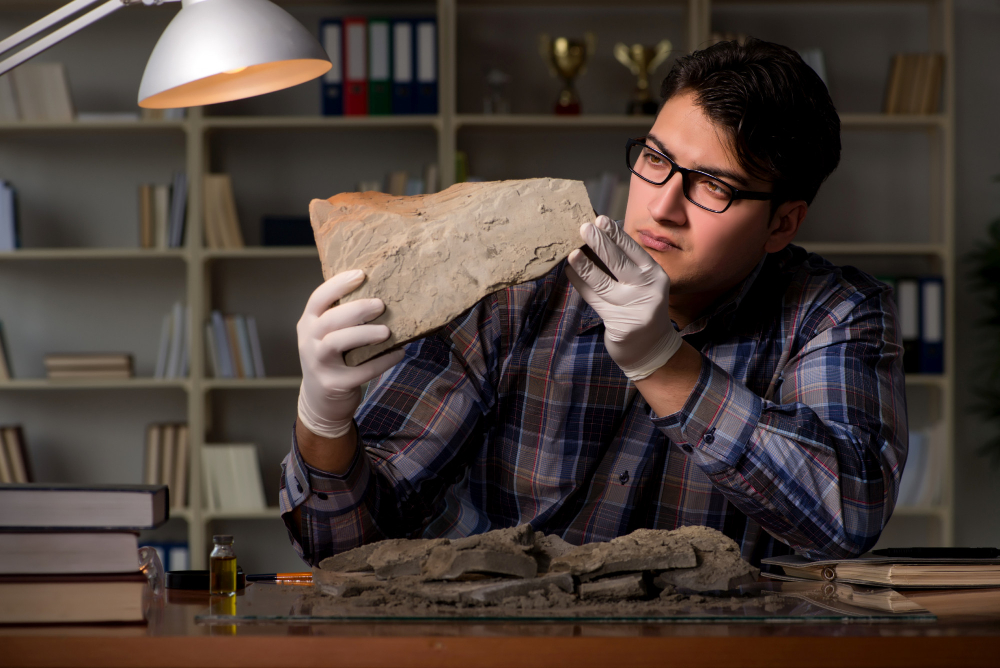Embarking on a career in archaeology is akin to becoming a time traveler, one who delves into the depths of the earth to uncover stories long buried by time. Archaeologists are detectives of history, piecing together artifacts, structures, and cultural landscapes to narrate humanity’s past. This fascinating career requires a blend of passion, dedication, and scholarly rigor, offering a unique blend of fieldwork and research that can lead to groundbreaking discoveries. Whether you dream of unearthing ancient civilizations, preserving historical sites, or contributing to museum collections, this article guides you through the journey from your initial interest in archaeology to establishing a career in unearthing the past.
Educational Pathways
The first step in becoming an archaeologist is pursuing the right educational foundation. A bachelor’s degree in archaeology, anthropology, or a related field is essential. These programs provide a comprehensive overview of human history, research methods, and archaeological theory. They also offer practical experience through field schools, where students gain hands-on experience in excavation techniques, artifact analysis, and site preservation. Aspiring archaeologists should take advantage of these opportunities to build their skills, network with professionals, and get a taste of the challenges and rewards of archaeological fieldwork.
Advanced Studies and Specialization
For those aiming to advance in the field, a master’s or doctoral degree in archaeology is often necessary. Graduate programs allow students to specialize in a particular area of interest, such as classical archaeology, underwater archaeology, or bioarchaeology. Specialization enables deeper research into specific periods, regions, or technological methods, contributing to the broader knowledge base of human history. Additionally, advanced degrees typically involve significant field research, leading to a thesis or dissertation that can pave the way for future professional opportunities.
The Heart of Archaeology
Fieldwork is the cornerstone of an archaeologist’s career, providing the practical experience necessary to succeed in the profession. Early participation in field schools and volunteer projects can lead to more significant opportunities, such as internships with archaeological firms, government agencies, or international research projects. Gaining diverse field experience is crucial, as it hones excavation skills, deepens understanding of archaeological contexts, and builds resilience and adaptability. Moreover, fieldwork offers the chance to discover new interests and refine research questions that can guide future academic and professional pursuits.
Connecting with the Past and Present
Networking plays a vital role in the development of an archaeological career. Joining professional organizations, attending conferences, and participating in workshops can connect aspiring archaeologists with established professionals, academics, and peers who share similar interests. These connections can lead to collaborative research projects, job opportunities, and mentorship relationships. Engaging with the archaeological community not only fosters professional growth but also contributes to the ongoing dialogue about preserving and interpreting humanity’s shared heritage.
Career Paths in Archaeology
A career in archaeology can take many forms, from academia and research to cultural resource management and museum curation. Academics often focus on teaching and conducting research within universities, contributing to the body of scholarly work on human history. Cultural resource management (CRM) archaeologists work with government agencies, construction firms, and heritage organizations to assess and preserve archaeological sites threatened by development. Museum curators, on the other hand, oversee artifact collections, design educational exhibits, and engage the public in the stories of the past. Each path offers a unique way to contribute to the understanding and preservation of archaeological heritage.
Unearthing a Future in Archaeology
Becoming an archaeologist is a journey marked by the pursuit of knowledge, the thrill of discovery, and the responsibility of stewardship over our shared past. It requires a solid educational foundation, practical field experience, a commitment to lifelong learning, and a passion for unraveling the mysteries of human history. For those drawn to this path, a career in archaeology offers the chance to make lasting contributions to our understanding of the past, informing our present and shaping our future. Embarking on this career is not just about uncovering artifacts but becoming a guardian of the stories they tell, ensuring they continue to inspire and educate generations to come.
